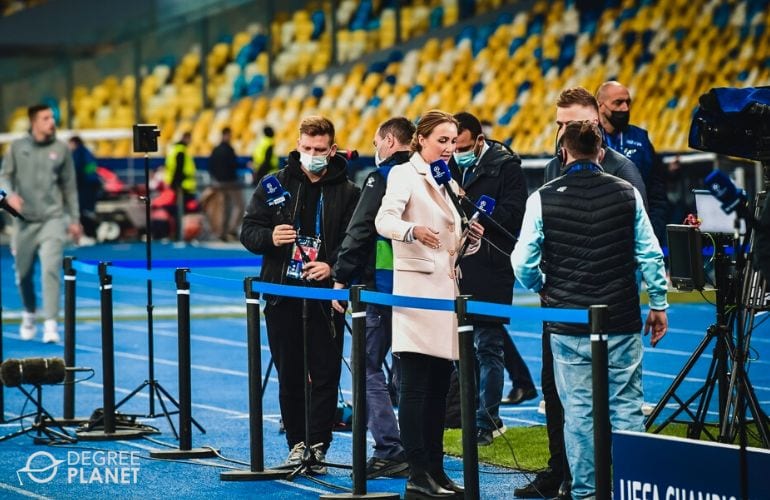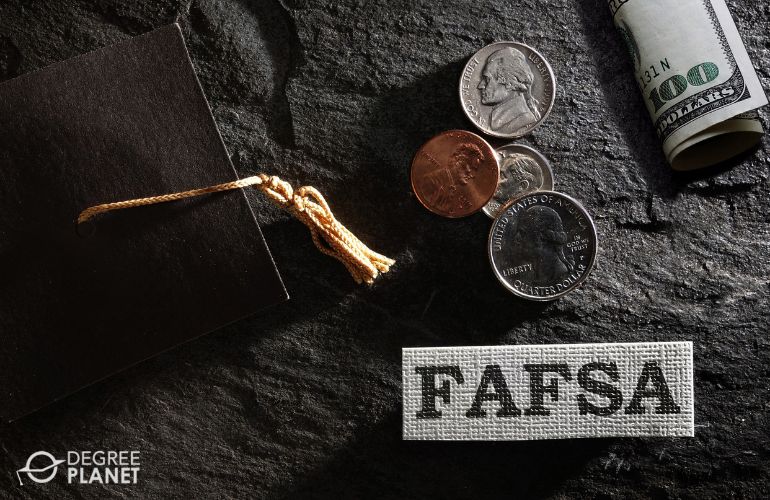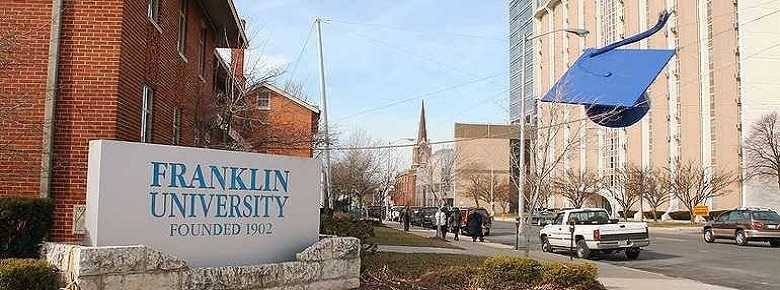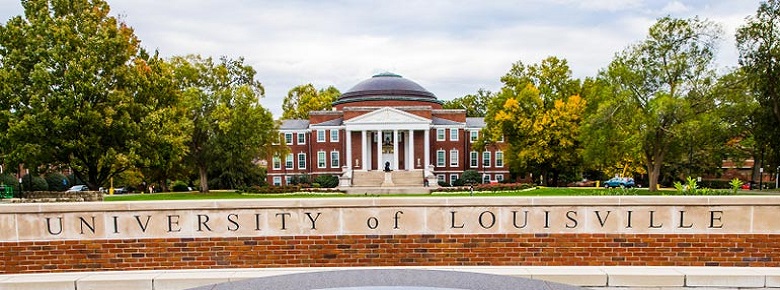If you have a knack for writing and can’t stand to miss a sports game, you may be well suited for a sports journalism degree.

This degree program helps you develop communication skills so that you can report on local, national, and international sports. A sports journalism degree can serve as preparation for a number of professionally and personally fulfilling careers, from on-air announcers to sports video editors.
Editorial Listing ShortCode:
Sports journalism majors often build skills in sports analysis, discussion, and reporting both on and off-screen.
Sports Journalism Degrees Online

Sports journalism degrees focus on clearly written, spoken, and visual communication. During a sports journalism bachelor’s program, you can learn how to think critically about sports and how to create compelling stories based on your analysis.
Working as a sports journalist requires an advanced level of accuracy, clarity, and creativity. As a result, while completing a bachelor’s in sports journalism degree online, you can expect to study subjects like:
- Writing and grammar
- Video and photo editing
- Ethics
- Broadcasting
- News reporting
- Public relations
- Graphic design
- Marketing
Most sports journalism programs also include hands-on experiences, such as internships or practicums. These components of your degree program allow you to get a full understanding of what it’s like to work in the field. After graduating with a sports journalism degree, you may be ready to pursue a position with a wide range of employers.
Editorial Listing ShortCode:
High-quality sports journalists make important contributions to the reports, broadcasts, and publications of many different types of organizations, including:
- Television networks
- Sports blogs
- Radio stations
- Newspapers
- Magazines
- Publishing companies
- Sports agencies
- Colleges and universities
Some sports journalists work as on-air announcers, analysts, and commentators, while others write scripts, stories, and promotional materials.
As a sportswriter, you might work for a specific company or offer your services on a freelance basis to various clients. Sports journalism professionals also often find success in the world of public relations, where they represent a particular sports team, association, or athlete. In this position, you might create press releases and develop social media content.
Graduates of sports journalism programs may also go on to work in photography, editing, production, directing, and videography. These roles involve capturing the action and excitement of sports and presenting them from a unique and original perspective.
Sports Journalism Careers & Salaries

A sports journalism degree may help you qualify for career opportunities both in front of and behind the camera or microphone. Graduates of these degree programs often go on to work as announcers, reporters, and writers.
In general, according to the Bureau of Labor Statistics, careers related to sports journalism have average or above-average salaries. These are some of the potential career paths for sports journalism professionals.
| Careers | Annual Median Salaries |
| Public Relations and Fundraising Managers | $119,860 |
| Producers and Directors | $79,000 |
| Writers and Authors | $69,510 |
| Editors | $63,350 |
| Public Relations Specialists | $62,800 |
| Film and Video Editors | $62,680 |
| Television, Video, and Film Camera Operators | $49,230 |
| News Analysts, Reports, and Journalists | $48,370 |
| Photographers | $38,950 |
| Broadcast Announcers and Radio DJs | $37,630 |
The salary range for sports journalists varies widely based on where you live and what type of work you do. For example, a sports announcer who works on television typically earns more than one who works on radio.
Editorial Listing ShortCode:
The Bureau of Labor Statistics projects that quite a few areas of employment related to sports journalism will experience rapid growth over the next ten years. For example, film and video editors (14% job growth) and public relations specialists (8%) both have projected growth rates that are much faster than the average for all occupations.
Sports Journalism Bachelor’s Curriculum & Courses

The curriculum of a sports journalism bachelor’s degree differs based on the school you attend, but most programs incorporate reporting skills for different types of media—including print, television, and radio. These are some common courses sports journalism students take:
- Principles and History of Journalism: In this course, you’ll explore the history of journalism and the principles that have guided journalists in their decisions.
- Grammar for Journalists: This class centers on the grammar skills that are essential to clear communication and effective reporting.
- Coding for Journalists: Many journalists work primarily online, so this course provides students with a basic understanding of programming and web design.
- News Reporting and Writing: In this class, you can develop essential writing and reporting skills for print and online publications, broadcasting, and public relations.
- Sports Multimedia Journalism: The focus of this class is the use of digital tools that multimedia sports journalists rely on, including video and photo editing software.
- Sports Reporting: Students in this course practice pitching, developing, and writing sports stories and meeting deadlines.
- Ethics and Diversity: In this course, you’ll discuss ethical problems that occur in the world of sports media, including working with diverse populations.
- Introduction to Editing: Students will receive instruction in editing copy, graphics, and photos.
- Sports Marketing and Campaigns: In this class, students who hope to pursue a career in public relations learn how to develop an effective marketing campaign.
- Television Sports Reporting: With a focus on television broadcasting, this course helps you develop advanced skills in sports writing, reporting, and editing.
A sports journalism program may also include elective courses that allow you to tailor your degree to your specific career goals.
Admissions Requirements

Every sports journalism program has its own set of criteria for admission. Common requirements include:
- Transcripts. You’ll submit official transcripts from your high school and any undergraduate institutions you have attended.
- Test scores. Some schools, but not all, require students to submit minimum ACT or SAT scores.
- Recommendations. You could ask previous instructors or supervisors to explain why you are a good choice for the program.
- Personal statement. You may be asked to write a brief essay explaining your interest in the program and your future goals.
In most cases, you will also complete an online application and pay an application fee.
Accreditation

Schools that want to demonstrate that they offer high-quality educational experiences can apply for national or regional accreditation. They must demonstrate that they meet strict academic standards.
Attending a regionally accredited school is especially beneficial. Regional accrediting bodies have stringent assessments for colleges and universities, so you are more likely to receive a quality education if you attend a school with this type of accreditation. It is also easier to transfer credits from regionally accredited schools, which is especially crucial if you change schools midway through your degree.
Editorial Listing ShortCode:
Graduate schools and prospective employers also tend to look more favorably at a degree from a regionally accredited institution.
Financial Aid and Scholarships

There are many financial aid resources available for students who want assistance in funding their higher education.
Filing a Free Application for Federal Student Aid (FAFSA) is a common first step in pursuing need-based aid. This application determines whether you are eligible for federal student loans as well as other forms of federal aid.
Many states also offer financial aid programs that you can apply for separately. Scholarships can be another vital avenue for aid. You can search an online database or speak to your school’s financial aid office about scholarship programs that are designed for your major or personal background.
If you are currently employed, you could speak to your employer about potential tuition assistance or reimbursement programs. Many employers help fund workers’ education as a form of professional development.
What Is a Sports Journalism Online Degree?

A sports journalism online degree is a bachelors program that centers on the skills that professionals need to report on sports events, personalities, and news.
Sports journalists can work in written and oral media formats, including television, radio, online, and print publications. While completing a sports journalism degree, students can develop skills in written communication, editing, production, and on-air broadcasting. They can also hone their grammar, critical thinking, and interviewing abilities.
Many sports journalism programs also involve internships, which allow students to get hands-on experience in the field. Internships can often be valuable when applying for jobs with prospective employers.
Is Sports Journalism a Good Degree?

Yes, sports journalism is a good degree for many undergraduate students. A sports journalism major offers a strong foundation for many types of careers, several of which have competitive salaries.
Some sports journalism graduates go on to become announcers, commentators, writers, and editors. According to the Bureau of Labor Statistics, several of these positions, including writers and editors, have salaries that are well above the average for all occupations.
In many cases, sports journalists get the opportunity to travel, meet new people, and attend prominent sporting events. Experienced sports journalists may also have the opportunity to become sports news producers or directors.
What Can You Do with a Sports Journalism Major?

After graduating with a sports journalism bachelor’s degree, you may be well-positioned to apply for a variety of jobs with different employers.
Television networks, radio stations, news media companies, and online publications hire sports journalists to cover breaking news stories, sports events, and athlete profiles. Sports radio and television announcers often have sports journalism degrees as well. If you prefer to work behind the scenes, a sports journalism degree may strengthen your resumé for a position as an editor, writer, or producer.
Sometimes, graduates of sports journalism bachelors programs decide to continue their educations in masters in sports journalism online or on-campus programs.
How Long Does It Take to Get a Bachelor’s Degree in Sports Journalism Online?

The length of an online sports journalism degree depends on the number of credit hours required and your personal circumstances. Full-time students who attend a traditional 16-week semester generally graduate in 4 years.
Some schools offer accelerated or condensed programs that can be completed more quickly. If you attend summer classes or took college credits in high school, you may also be able to graduate in a shorter timeframe.
Editorial Listing ShortCode:
Students with other obligations and responsibilities, such as work or childcare, may choose to attend part-time. In those cases, it may take longer to finish your degree.
How Much Do Sports Journalists Make?

Sports journalists earn a range of salaries, depending on their employer, location, and years of experience. According to the Bureau of Labor Statistics, the median annual salary for news analysts, reporters, and journalists as a whole are $48,370, while announcers have a median salary of $37,630.
Your potential earnings differ based on the type of broadcasting you pursue. For example, news analysts, reporters, and journalists who work in radio and TV broadcasting have median earnings of $49,720. Meanwhile, the median wage for those who work for newspapers and other publishers is $38,210 per year.
Other areas of employment related to sports often have higher salaries. For instance, professionals who become producers and directors have median annual salaries of $79,000.
Do You Need a Degree in Sports Journalism to Become a Sports Journalist?

While it’s possible to build a career as a sports journalist without earning a degree, attending an accredited sports journalism program may give you a competitive edge when applying for jobs.
While pursuing your degree, you will be exposed to cutting-edge media techniques and technologies that may otherwise be difficult to learn. This knowledge could help you prove your expertise to potential employers who are looking for field-ready professionals.
Many sports journalism programs also include internships or practicums that provide a professional experience with real-life employers. This exposure and networking opportunity might allow you to make critical professional connections.
Is a Sports Journalism Degree Worth It?

Yes, a sports journalism degree is worth it for many students. Sports journalism is an exciting, evolving field with opportunities for employment and growth. Some professionals in the field even get to travel and take part in national and global events.
Editorial Listing ShortCode:
Sports are an extremely popular form of entertainment around the world, which helps stabilize the job market for sports journalists. This stability translates to sportswriters as well as off-air talent. According to the Bureau of Labor Statistics, employment for media and communication occupations overall is expected to grow by 6% over the next ten years.
Universities Offering Online Bachelors in Sports Journalism Degree Programs
Methodology: The following school list is in alphabetical order. To be included, a college or university must be regionally accredited and offer degree programs online or in a hybrid format.

Franklin University offers a Bachelor of Science in Sport Management. Focus areas are available in Recreational Program Management and Coaching, Sports Marketing, Sport Performance, and Athletic Administration and Sport Leadership. All classes meet 100% online. Up to 90 qualifying credit hours may be transferred in toward the program’s 120 required credit hours.
Franklin University is accredited by the Higher Learning Commission.

Liberty University offers a Bachelor of Science in Sports Management. Students interested in pursuing journalism careers within the sport industry may find an excellent fit in the Sport Communication and Public Relations concentration. Classes meet online, and each one is 8 weeks long. The program’s 120 required credit hours can typically be completed in 3.5 years.
Liberty University is accredited by the Southern Association of Colleges and Schools Commission on Colleges.

Regis University offers a Bachelor of Arts in Communication with specializations in Conflict Management and Leadership. The program requires the completion of 120 credit hours and is housed entirely online. Many graduates pursue careers in mediation, sales, public relations, multimedia journalism, politics, or television broadcasting.
Regis University is accredited by the Higher Learning Commission.

The University of Arizona offers a Bachelor of Arts in Communication. The curriculum aims to help students develop impeccable writing, critical thinking, and interpersonal communication skills. Classes can be attended online or at one of several campuses. On average, the program’s 120 required credits can be completed in 4 years when attending classes full-time.
The University of Arizona is accredited by the Higher Learning Commission.

The Bachelor of Science in Journalism program at the University of Florida offers a concentration in Sports and Media. It requires the completion of 124 credit hours. Graduates often pursue careers as sports reporters, journalists, special media managers, communication specialists, or television producers.
The University of Florida is accredited by the Southern Association of Colleges and Schools Commission on Colleges.

The University of Louisville offers a fully online Bachelor of Science in Sport Administration. This multidisciplinary degree covers concepts from fields like administration, finance, economics, marketing, and law. The program requires the completion of 123 credit hours. Potential courses include Sport Governance, Entrepreneurship in Sport, and Career Development in Sport Administration.
The University of Louisville is accredited by the Southern Association of Colleges and Schools Commission on Colleges.

The University of Rhode Island offers a Bachelor of Arts in Strategic Communication Studies. This program is designed for adult learners with previously completed baccalaureate coursework who wish to complete their degrees. All classes meet fully online and are 7 weeks long. The program accepts applications for incoming students year-round.
The University of Rhode Island is accredited by the New England Commission of Higher Education.

The Bachelor of Arts in Communication program at the University of Texas—Permian Basin offers a Sports Media track. This program may be an ideal fit for students who are passionate about the intersection of journalism and athletics. Coursework can be completed asynchronously online. Graduates often pursue careers in public relations, sports marketing, or social media marketing.
UTPB is accredited by the Southern Association of Colleges and Schools Commission on Colleges.

The University of West Alabama offers a Bachelor’s in Sport Management program. Depending on professional goals, the degree can be completed as a Bachelor of Arts or a Bachelor of Science. Classes meet online and are 8 weeks long. On average, the 120 required credits can be completed in 4 years of full-time study.
The University of West Alabama is accredited by the Southern Association of Colleges and Schools Commission on Colleges.

Upper Iowa University offers a Bachelor of Arts in Communication Studies. Emphases are available in Communication Studies, Mass Media, and Sports Communication. Coursework can be completed virtually online or at one of several campuses. Potential courses include Sports Writing and Reporting, Organizational Communication, News Editing, and Public Relations.
Upper Iowa University is accredited by the Higher Learning Commission.
Getting Your Sports Journalism Degree Online

If you love learning about, discussing, and analyzing sports, you might consider a sports journalism degree. This degree program can help you develop the skills necessary to work as a sports journalist, editor, or producer.
Sports journalism colleges focus their programs on essential communications skills, and many incorporate professional experiences into their curriculums. During your program, you’ll likely study television, radio, print, and online journalism.
Earning a sports journalism degree may be the first step toward a rewarding career. You can start your educational journey today by researching online schools with accredited sports journalism bachelor’s degree programs.

